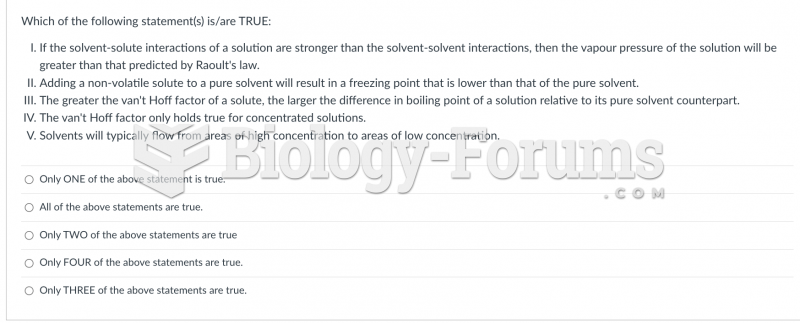|
|
|
On average, someone in the United States has a stroke about every 40 seconds. This is about 795,000 people per year.
It is believed that the Incas used anesthesia. Evidence supports the theory that shamans chewed cocoa leaves and drilled holes into the heads of patients (letting evil spirits escape), spitting into the wounds they made. The mixture of cocaine, saliva, and resin numbed the site enough to allow hours of drilling.
Between 1999 and 2012, American adults with high total cholesterol decreased from 18.3% to 12.9%
For about 100 years, scientists thought that peptic ulcers were caused by stress, spicy food, and alcohol. Later, researchers added stomach acid to the list of causes and began treating ulcers with antacids. Now it is known that peptic ulcers are predominantly caused by Helicobacter pylori, a spiral-shaped bacterium that normally exist in the stomach.
The first oral chemotherapy drug for colon cancer was approved by FDA in 2001.







